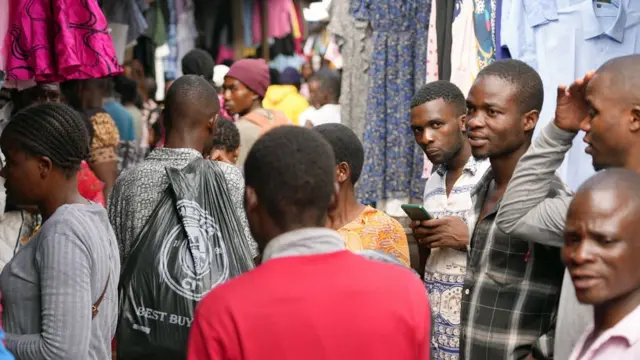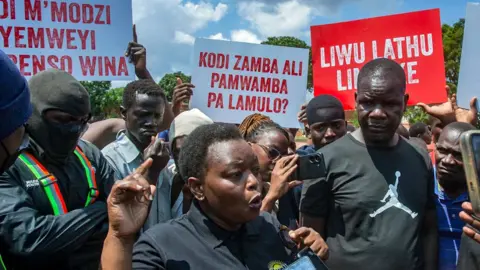Introduction: When Children Must Stay Clean to Save Money
In Lilongwe,Malawi inflation crisis domestic worker Suzanna Kathumba makes heartbreaking decisions to stretch her monthly salary of 80,000 kwacha (~US$46). To save on soap, she has even told her young children not to get too dirty—highlighting the grim toll of rising prices in a country grappling with hyperinflation. The BBC recently reported on how families are forced to make such sacrifices. BBC News

The Inflation Surge: Living Costs Explode
In May, Malawi’s annual inflation hit a staggering 27.7%, down from 29.2% in April—but still among the highest in Africa Malawi inflation crisis. An Ernst & Young report labeled the country “hyperinflationary,” with three-year cumulative inflation at 116% as of December 2024, and forecasts of 102% for 2025. IMF World Economic Outlook
With 70% of Malawians living on less than US$2.15 a day, food staples like sugar now cost 4,500 kwacha (~US$3 per kg), while soap becomes a luxury. Kathumba says after paying school fees (50,000 kwacha per child per term), “I have absolutely nothing left.” World Bank Poverty Data

Why Inflation Keeps Rising
Economists point to Malawi inflation crisis limited foreign exchange reserves. The country exports maize, soya, and sugar, but must import fertilizers, medicine, and furniture—creating a persistent forex shortage.
- Official exchange rate: ~1,750 kwacha per US$
- Black-market rate: 4,000–5,000 kwacha per US$
This disparity inflates import costs, pushing prices higher. Traders and consumers across Malawi bear the brunt.

Market Strain and Protests
Stationery shop owner Mohammed Hanif Waka reports falling sales and forced layoffs as forex shortages shut access to imports. BBC News
In February, hundreds of informal traders protested at parliament, demanding affordable goods. Steve Magombo, chairman of Lilongwe’s Tsoka Flea Market, lamented: “we are failing to buy our commodities Malawi inflation crisis.” Al Jazeera
IMF Loan Paused
Malawi’s four-year IMF $175m loan—approved in November 2023—has been paused. Only $35m has been disbursed. IMF Mission Chief Justin Tyson says fiscal discipline stalled, and the loan program requires review every 18 months. IMF statement
Finance Minister Simplex Chithyola Banda prioritizes fuel availability over reserve accumulation and warns rising fuel prices may increase essential goods costs. BBC News
Political Stakes Ahead of Elections
With elections looming in September, forex rationing and rising prices could shape the political landscape. Opposition parties are blaming the government, and Minister Mumba signals upcoming anti-sabotage legislation targeting price-gouging. Reuters

Conclusion: Hope Amid Hardship
Malawians like Suzanna Kathumba look to government action and political leadership for relief. “We depend on the government for assistance,” she says, hoping that officials will remember the less privileged when making policy decisions.
For more on Africa’s cost-of-living crises and their human impacts, visit The Morning News Informer.